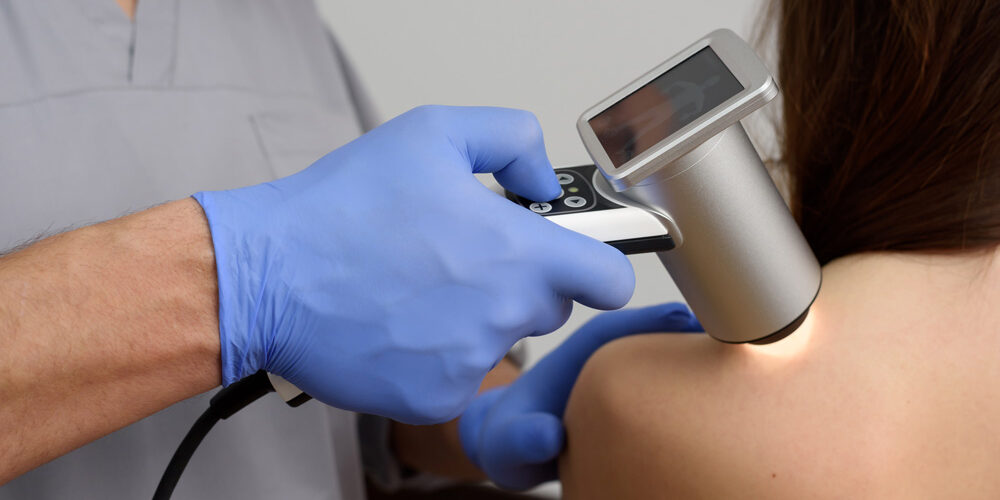Professor Cliff Rosendahl and Aksana Marozava are the authors of “Dermatoscopy and Skin Cancer, A handbook for hunters of skin cancer and melanoma.”
Published in May 2019, this textbook was one of the first to reference data collected through SCARD and present it to medical professionals as part of their studies.
From reviews: “This new textbook provides an invaluable resource for new and improving students of dermoscopy both to read and reference. It offers a methodical and comprehensive guide to understanding dermoscopy and using it to assess skin lesions. …The breadth of material included and the clarity of writing have created a book that I suspect will be highly influential in its field, with the potential to become a standard reference for students of dermoscopy.”
You can find the textbook at https://www.booktopia.com.au/dermatoscopy-and-skin-cancer-cliff-rosendahl/book/9781911510338.html

About Dermatoscopy
Dermatoscopy is a non-invasive diagnostic technique that allows dermatologists to examine the skin in detail. It involves using a specialized handheld device called a dermatoscope, which magnifies the skin surface to reveal details not visible to the naked eye. By examining the patterns and colours of the skin lesions, dermatologists can differentiate between benign and malignant skin conditions.
Skin cancer diagnosis is one of the main applications of dermatoscopy. Dermatologists use this technique to detect early signs of skin cancer, such as melanoma, the deadliest form of skin cancer. Melanoma can develop from existing moles or appear as new dark spots on the skin. Dermatoscopy can help dermatologists differentiate between benign and malignant moles by analyzing their shape, colour, and pattern.
Dermatoscopy has revolutionized the field of skin cancer diagnosis by enabling earlier detection of skin cancer and more accurate differentiation between benign and malignant skin conditions. With regular dermatoscopic examinations, dermatologists can help patients prevent skin cancer or catch it at an early stage when it is more easily treatable. If you have concerns about a suspicious skin lesion, consult a health care professionals who can perform a thorough dermatoscopic examination to determine if further testing or treatment is necessary.







